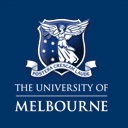Full description
Studies of depressed patients have demonstrated increased amygdala activation to negative affective stimuli. In this study, we used a paradigm that employed personally relevant social stimuli, which are known to strongly activate the amygdala, to test whether the amygdala demonstrated aberrant activity in depressed participants as they responded to stimuli with positive valence. Nineteen patients with major depressive disorder (recruited from Orygen Youth Health), aged 15 to 24 years, were matched with 20 healthy control participants. They completed a novel functional magnetic resonance imaging task in which they received social feedback from people who they believed had evaluated them. Voxelwise statistical parametric maps of brain response to positive social feedback and to a control feedback condition were compared to test the hypothesis that differences in neural response between depressed and control participants would arise in the amygdala. Time period: 2008-2009 Subjects
User Contributed Tags
Login to tag this record with meaningful keywords to make it easier to discover


